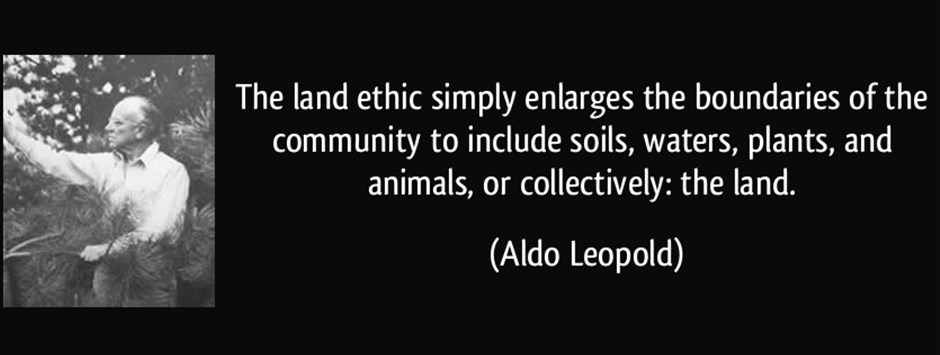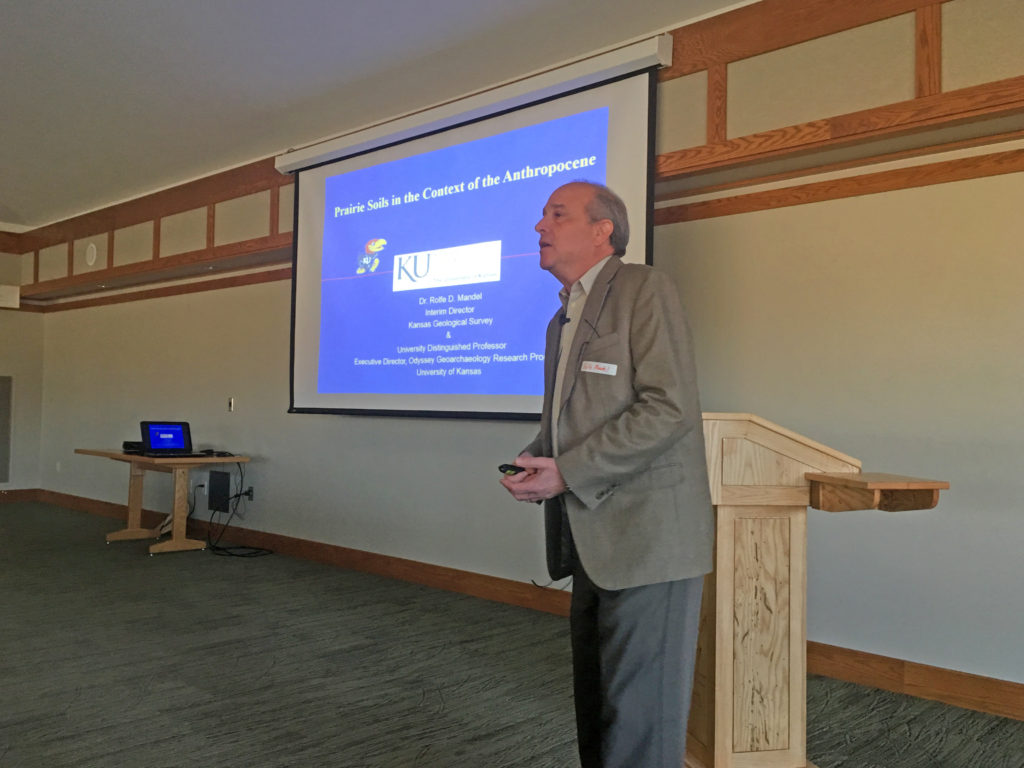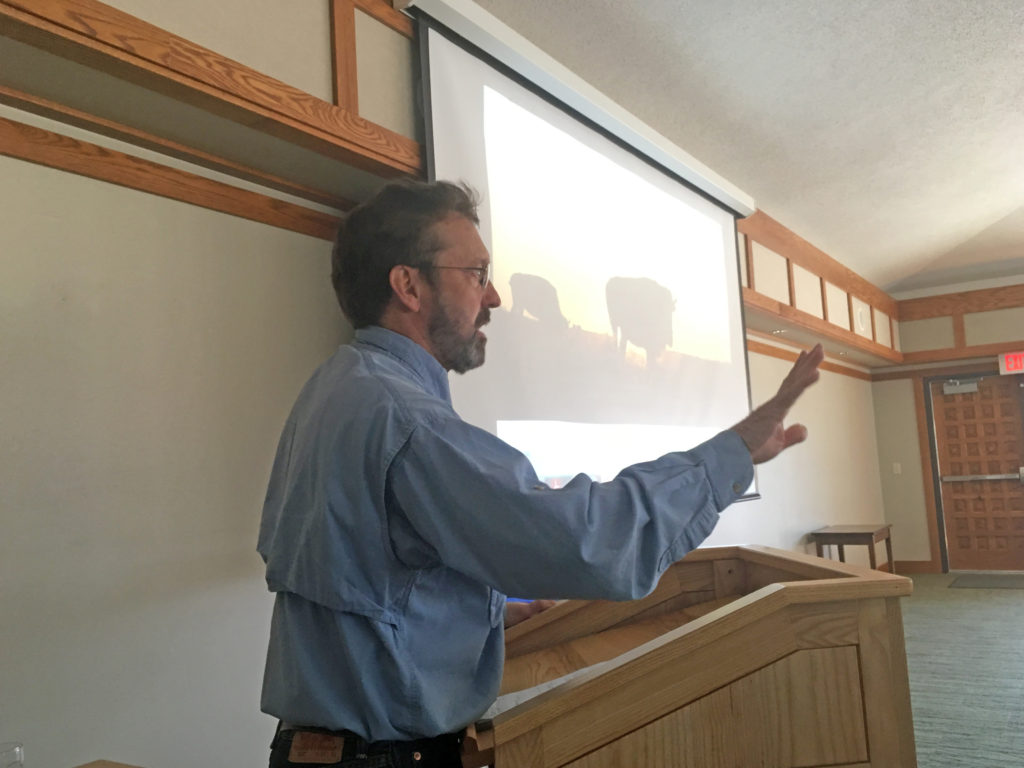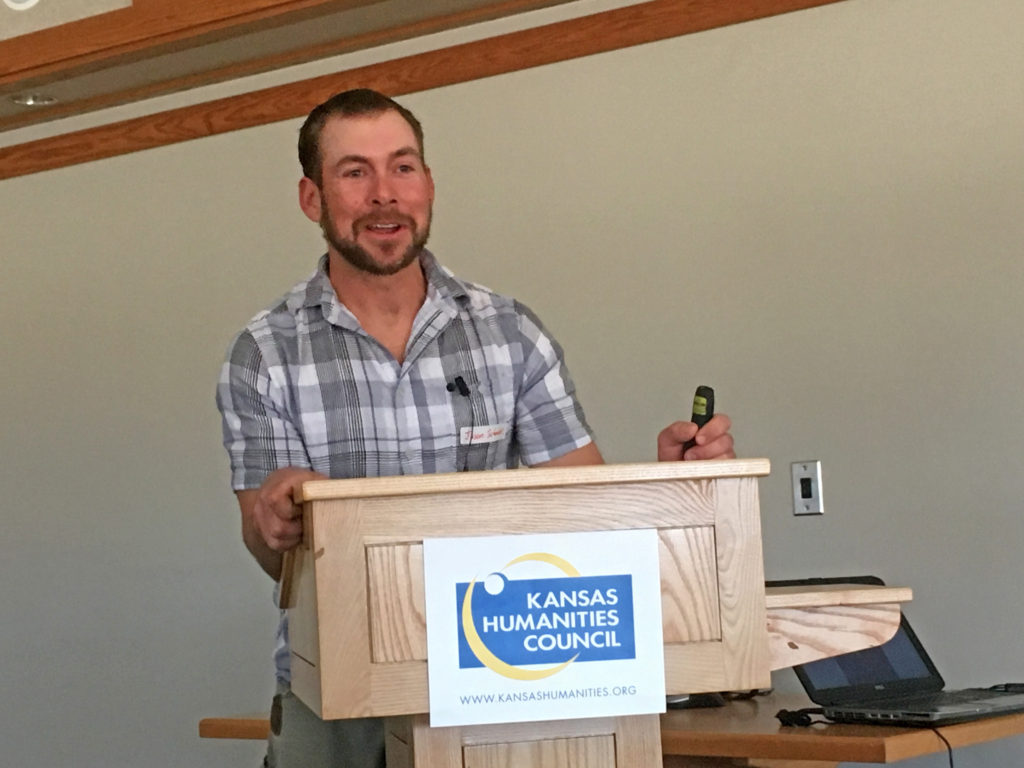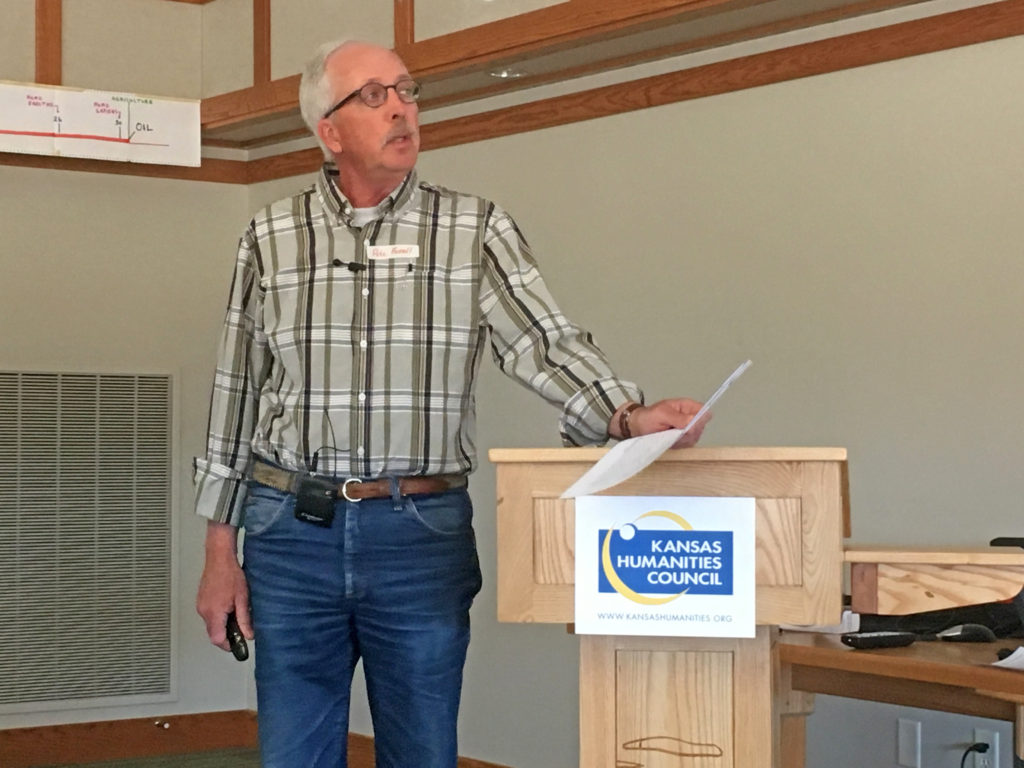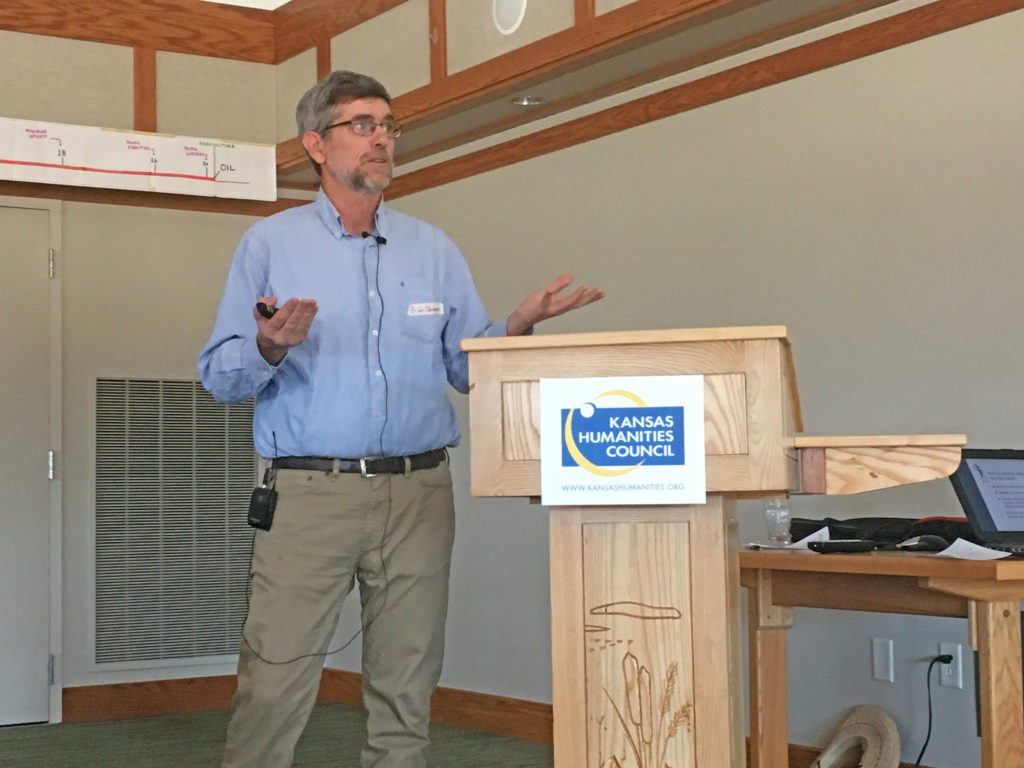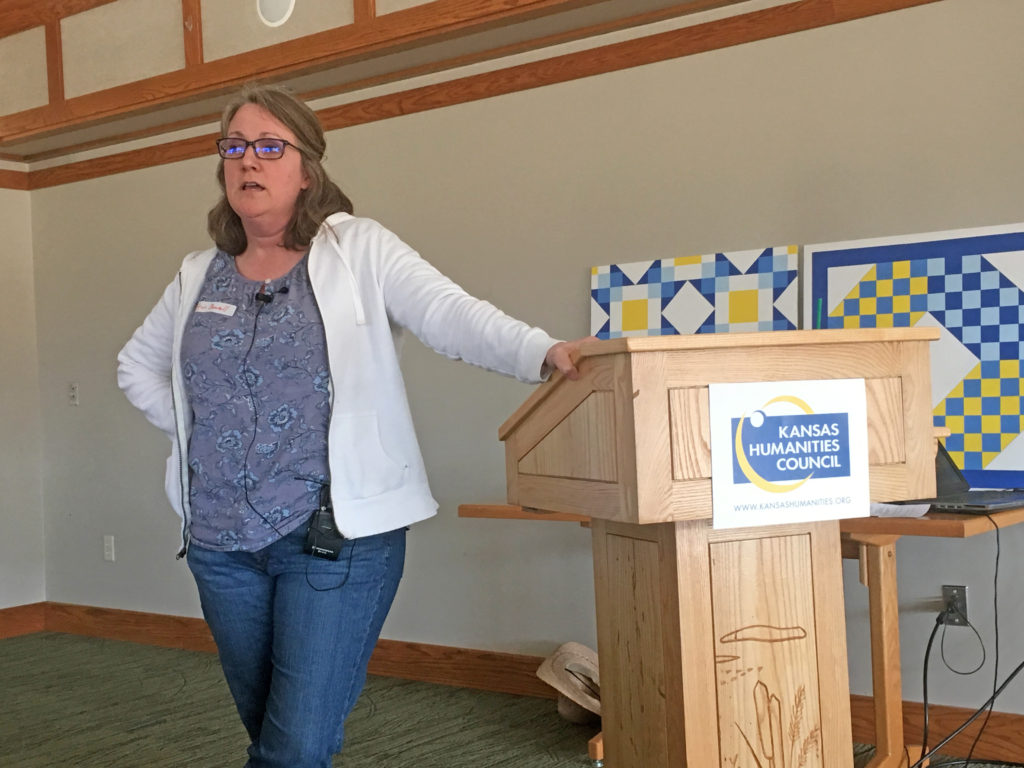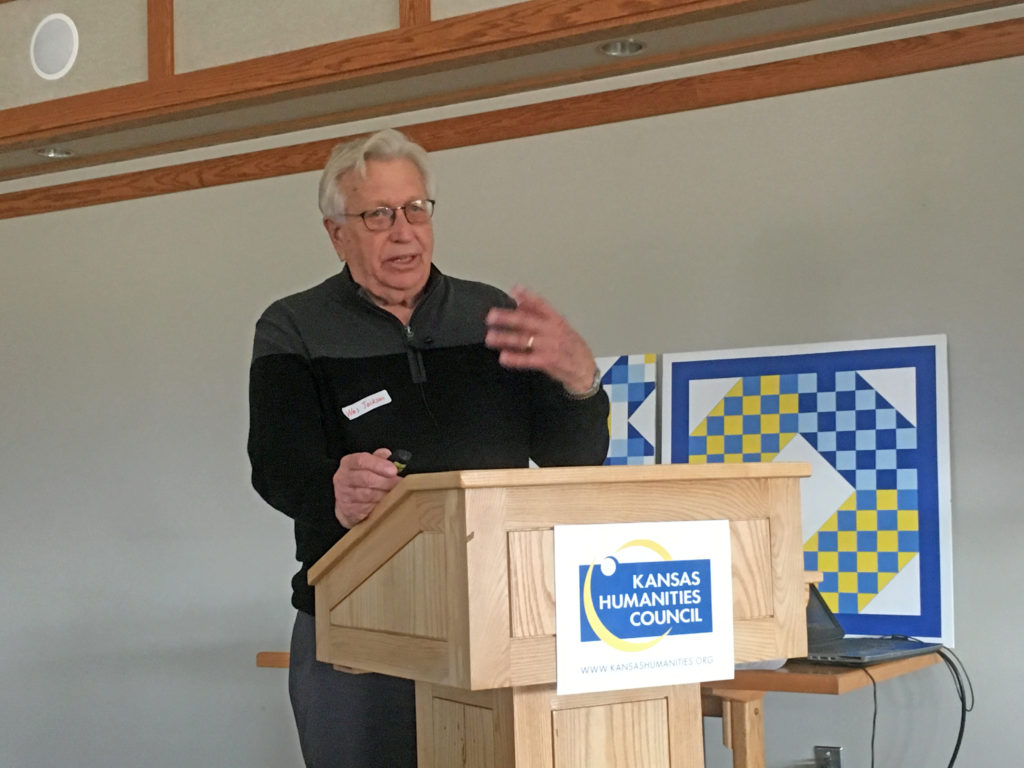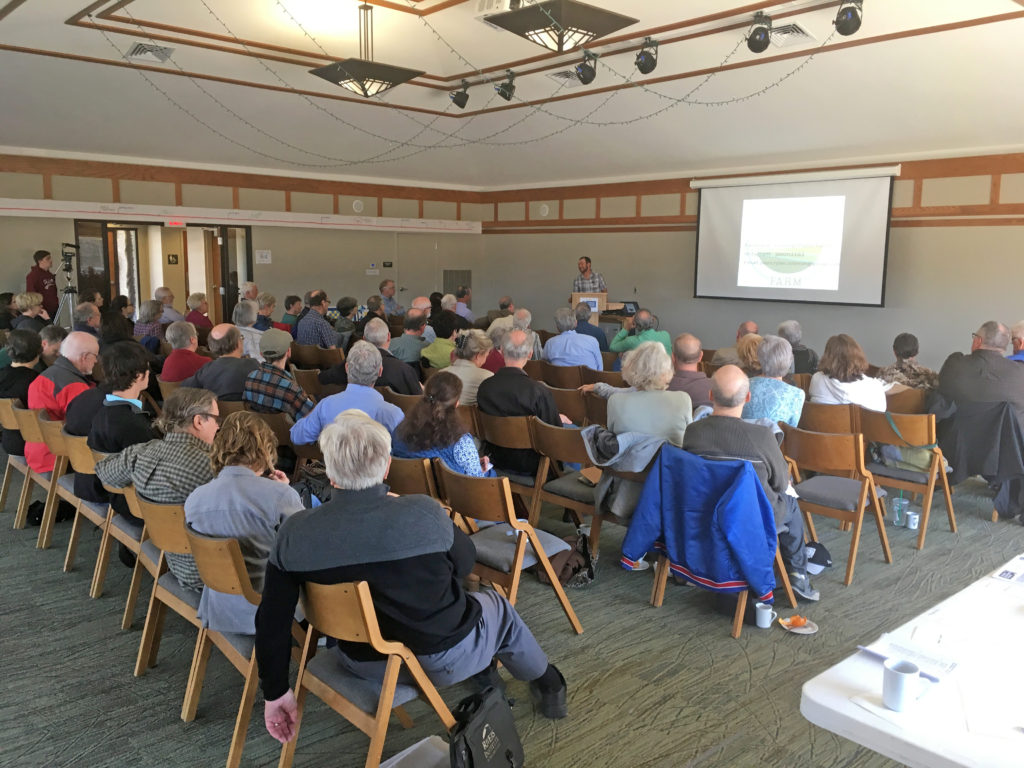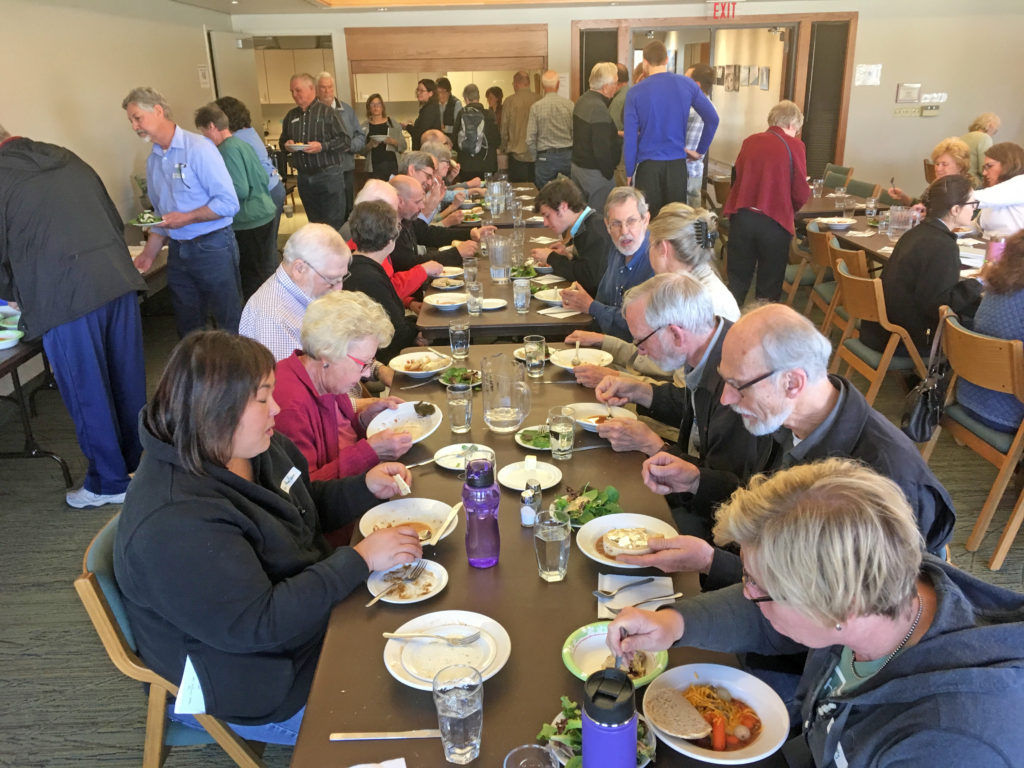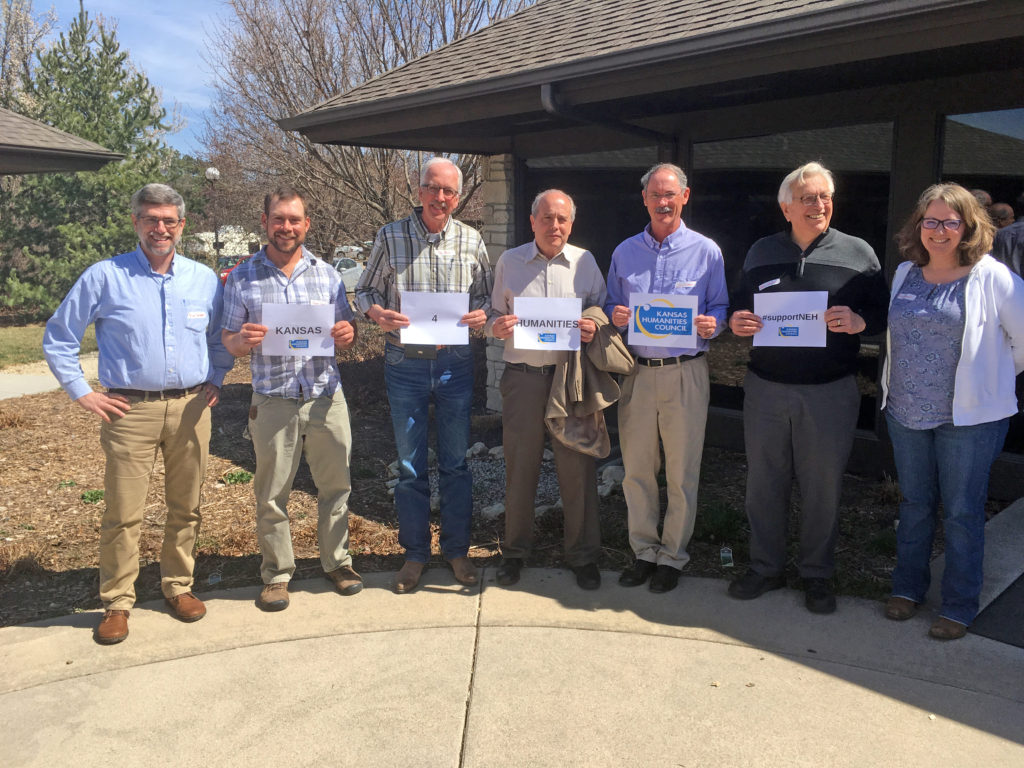On Saturday, March 18, we held our 11th annual spring education symposium entitled Living the Land Ethic in Kansas, and learned how much we have to celebrate in Kansas. This symposium was many months in the making and it went smoothly thanks to our four staff, help from a number of board members, the assistance of many volunteers, and underwriting support from Kansas Humanities Council.
The speakers were top-notch and their messages were filled with immense knowledge and passion. Those among the 85 registered attendees were literate, engaged, and full of great questions. The homemade baked goods for breakfast, Lorna Harder’s venison stew for lunch, and nice day outside to enjoy during breaks all helped round out a perfect day.
I gave a brief introduction of how this symposium developed as part of our year-long Dyck Arboretum 35th anniversary celebration with a focus on Aldo Leopold’s Land Ethic chapter in his famous book A Sand County Almanac. We then heard presentations about the essential Kansas natural elements of “The Land” from educators and writers, Rolfe Mandel (soils), Craig Freeman (vegetation), and Michael Pearce (wildlife) and how these elements are foundational to our Kansas natural history, agriculture/ranching-based economy, food systems, and land-based enjoyment and recreation. Land stewards Jason Schmidt, Pete Ferrell, and Brian Obermeyer told their stories of how being a land caretaker is not only a way to make a living but that it is part of a cherished way of life through which one strives to sustainably pass along stewardship responsibilities to future generations. Elementary school teacher, Erin Dowell explained how critical it is to instill a land ethic in our children that will be our future land stewards. And visionary, Wes Jackson, rounded out the day with a presentation about how we as agricultural agents must steward the land as part of a living ecosphere.
The day was filled with dialog and rich with a variety of science as well as humanities topics about the important interplay between the land and people. Thank you to all participants!

